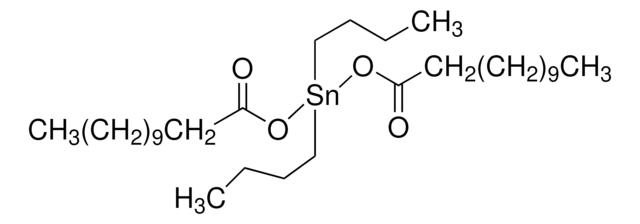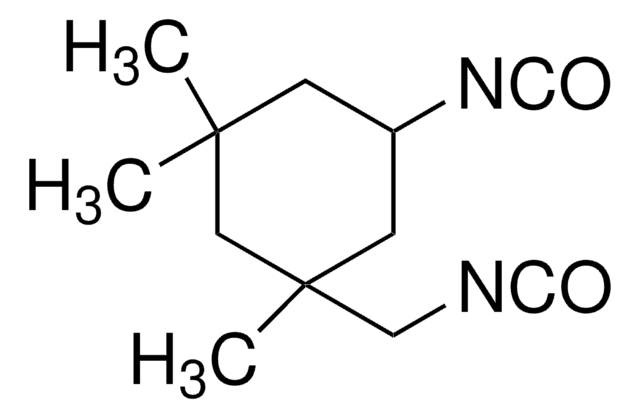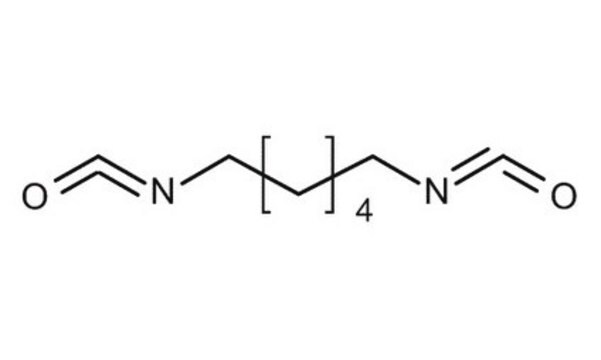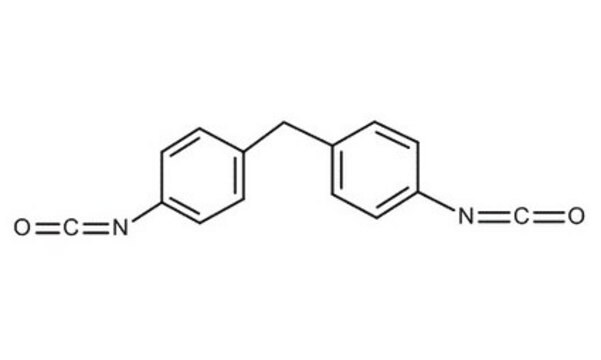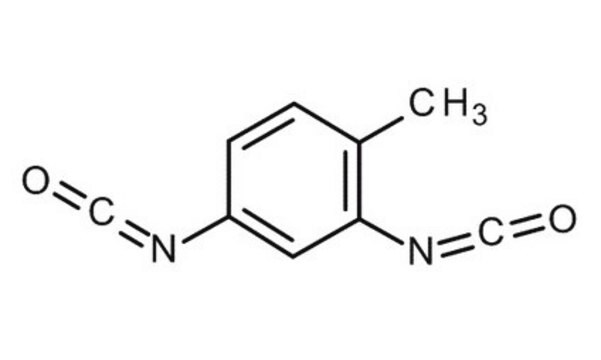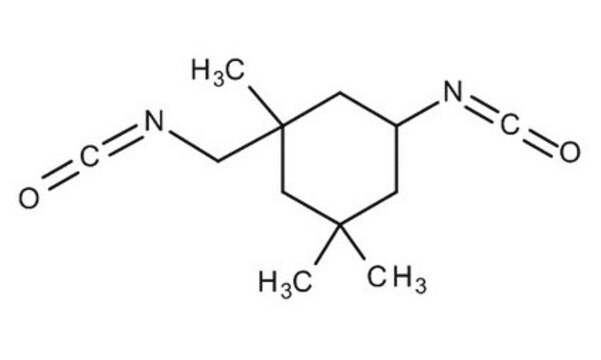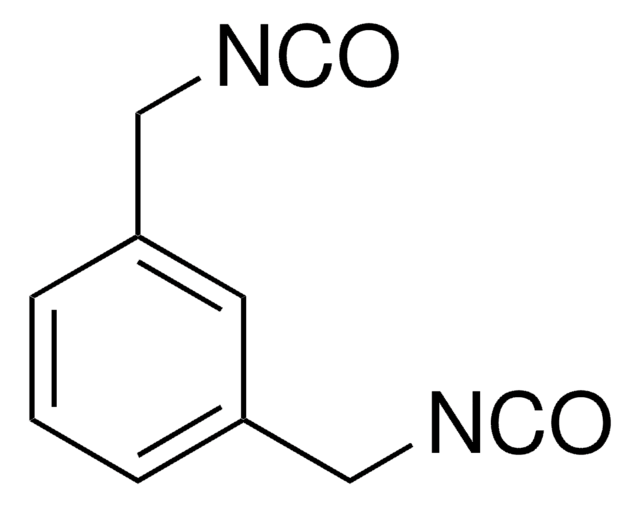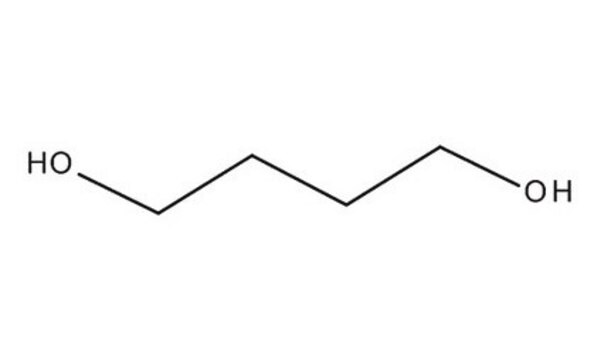8.08264
Toluylene diisocyanate
(mixture of isomeres) for synthesis
Synonym(s):
Toluylene diisocyanate, 4-Methyl-m-phenylene diisocyanate, TDI
About This Item
Recommended Products
vapor pressure
0.03 hPa ( 20 °C)
Quality Level
form
liquid
autoignition temp.
620 °C
potency
4130 mg/kg LD50, oral (Rat)
>12200 mg/kg LD50, skin (Rabbit)
expl. lim.
0.9-9.5 % (v/v)
bp
247 °C/1013 hPa
mp
12-14 °C
transition temp
flash point 132 °C
density
1.22 g/cm3 at 20 °C
1 of 4
This Item | 8.20797 | 8.22066 | 8.18586 |
|---|---|---|---|
| density 1.22 g/cm3 at 20 °C | density 1.239 g/cm3 at 20 °C | density 1.05 g/cm3 at 25 °C | density 1.06 g/cm3 at 20 °C |
| form liquid | form liquid | form liquid | form liquid |
| mp 12-14 °C | mp 10 °C | mp -67 °C | mp -60 °C |
| storage temp. 2-30°C | storage temp. 2-30°C | storage temp. 2-30°C | storage temp. 2-30°C |
| bp 247 °C/1013 hPa | bp 196 °C/7 hPa | bp 255 °C/1013 hPa | bp 158-159 °C/13 hPa |
Application
- Preparation and properties of toluene-diisocyanate-trimer-modified epoxy resin: Discusses the enhancement of epoxy resin properties through the self-polymerization of TDI, aiming to improve performance in industrial applications (X Zhang, L Qiao, X Lu, L Jiang, T Cao, 2019).
- A simple method for the quantification of free isocyanates on the surface of cellulose nanocrystals: This research focuses on the carbamation of cellulose using TDI, which is critical for the modification and enhancement of nanocellulose surfaces for various applications (H Abushammala, 2019).
- Fluorescent linear polyurea based on toluene diisocyanate: Reports the preparation of a TDI-based polyurea that exhibits broad emission spectra, suggesting potential uses in sensor applications and material science (H Cao, B Li, X Jiang, X Zhu, XZ Kong, 2020).
Analysis Note
Assay Toluylene-2,6-diisocyanate (NMR): 10.0 - 30.0 % (a/a)
Assay Toluylene-2,4-diisocyanate (NMR): 70.0 - 90.0 % (a/a)
Density (d 20 °C/ 4 °C): 1.218 - 1.222
Identity (IR): passes test
Due to its specific melting range the product may be solid, liquid, a solidified melt or a supercooled melt.
Signal Word
Danger
Hazard Statements
Precautionary Statements
Hazard Classifications
Acute Tox. 1 Inhalation - Aquatic Chronic 3 - Carc. 2 - Eye Irrit. 2 - Resp. Sens. 1 - Skin Irrit. 2 - Skin Sens. 1A - STOT SE 3
Target Organs
Respiratory system
Storage Class Code
6.1A - Combustible, acute toxic Cat. 1 and 2 / very toxic hazardous materials
WGK
WGK 2
Flash Point(F)
269.6 °F - closed cup
Flash Point(C)
132 °C - closed cup
Certificates of Analysis (COA)
Search for Certificates of Analysis (COA) by entering the products Lot/Batch Number. Lot and Batch Numbers can be found on a product’s label following the words ‘Lot’ or ‘Batch’.
Already Own This Product?
Find documentation for the products that you have recently purchased in the Document Library.
Customers Also Viewed
Our team of scientists has experience in all areas of research including Life Science, Material Science, Chemical Synthesis, Chromatography, Analytical and many others.
Contact Technical Service



